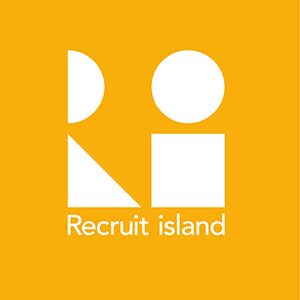So you‘re thinking about working in the customer service industry, but you’re not sure if it’s the right move for you?
When you’re a ‘social butterfly’ it can be difficult to know what job you fit into; which is why we have put together a few of the top benefits of working in customer service:
Benefits of working in customer service:
- Interacting with the public on a daily basis:
One good customer service experience can change the entire perception a customer has towards an organisation. The whole point of having customer service representatives is to make customer experiences more positive and create a better brand reputation for the company.
As a customer service representative, you are the first point of contact for customers whether it be via phone, email or in person.
You are invaluable to your organisation in that you consistently provide accurate product/service knowledge, information and appropriate education in order to help customers successfully navigate challenges and queries they are having; while being accountable to brand, policies, metrics, processes, and standards.
If you are a chatty, approachable person; interacting with the public on a daily basis should be a huge draw to you to work in the customer services industry; whether it be in an office or in a shop.
- The chance to help make a difference
Although customer services can be difficult at times, the feeling when you help someone to achieve the best possible outcome with your expert knowledge and enhance their customer experience is amazing.
No matter what industry you work in; the most important role of a customer service advisor is resolving customers queries or issues while adding value to the interaction making transactions smoother and less complicated; which for most people, is a big benefit to working in customer services.
- Team spirit
If you are a customer service adviser, there are almost always a big team alongside you. The benefit of this is not only the creation of close friendship, but also the opportunity to tap into your colleagues skills and knowledge in order to solve customer queries or issues.
- Transferable skills:
In customer service, you gain invaluable skills which can assist you throughout your career and also use to excel in your personal life.
Skills required / gained in customer service roles include:
- Interpreting a situation & how to approach the conversation:
Customer service representatives must have the ability to read people, even if it via a telephone call. Knowing how to approach a customer coming on the phone really angry is the difference between good and bad customer services. Commonly, if someone shouts at you, people get their back up straight away and shout back. In customer services, you must practice patience …. which leads me on to my next set of required skills…
- Patience & relationship management skills:
Working in customer service is definitely no easy job. You converse with all kinds of customers, some very polite whereas many others are more often , pretty rude.
Customer service representatives have to practice patience and remember that the customer is only reaching out for support as they are confused and frustrated about a product or service.
It is really important that customer service representatives take the time to understand the customers needs – asking probing questions and communicating efficiently and effectively ….
One major benefit of working as a customer service representative is the training on how to speak to customers. Learning to communicate well according to the requirement of the customers, whether it be verbally or non-verbally.
Other game changing skills learned in customer service is how to listen properly to a person.
- Softskills:- Listening, empathy & oftentimes negotiation skills:
Listening is one of the most important aspects of customer service. Understanding the customers requirement quickly; portraying empathy towards the situation and using all of the above skills will make or break your customer service career.
Empathy is important as, even when you cannot help the customer with exactly what they need, empathy and understanding goes a long way in controlling the perception the customer has about you and your company based off of the language that you use.
Changes in language helps to negotiate how the customer hears your response, such as the use of positive language.
Working in customer service will familiarise you with a number of different operating systems and programs that will be useful in many other careers such as data programs and/or client relationship management platforms that make your role, and the customers experience of your service, much easier.
Why Customer Service?
Customer Service is the heart of all businesses. Customers are brand loyal. When people spend money, they are likely to return to a business they know and with they have a positive experience.
Quality customer service is therefore directly linked to client retention. Ultimately, all employees should be focused on enhancing customer loyalty.
From dealing with the public to managing workload, liaising with other internal departments to using your initiative for decision making, nearly all of the experience you gain in a customer service job will benefit you in your next career move.
How to get a role as a customer service representative?
- Decide what industry you want to work in. Select this based on interests and experience.
- Job hunting. Registering on www.recruitisland.wpengine.com Where the employers come to find you.
- Always tailor your resume to each role you are applying for focusing on customer care experience, all experience working with the public counts – Customer care experience is not just in a call center, it could be bar work, shop assistants and Retail Work.
- Do your research on the role and business. Know their history, how long they have been in business, any awards won etc. Being able to refer to this during your interview will impress and may help you secure your role.
- Have answers ready, if you are asked about a time you went above and beyond for a Customer or Client have this prepared before your interview.
- Be Confident. And believe in yourself.
Commonly, customer service interviews are based around competency based questions. We have put together common questions you may be asked in a customer service interview:
- What do you know about the company?
- What is customer service? / What does customer service mean to you?
- Tell us about a time you went above and beyond for a customer and delivered excellent customer service?
- Tell us about a time you had to deal with an irate customer? How did you handle it & what approach did you take?
- Can you provide an example of when you identified a potential issue and how you worked to provide an effective solution?
- Tell me about a time where you identified a new and improved way of serving the customer
- Past experience and what you did to consistently deliver on goals even in face of obstacles
- Tell me about a time you felt you were a brand evangelist. What was behind your passion.
- What ideas do you have to improve a customer experience or improve a company brand?
- Give me an example of a time you had to adapt to new targets. How did you work to reach and exceed the goals?
- Tell me about a time when you had to become proficient in new functional or technical skills.
- Can you give us an example of a time you have leveraged on your knowledge and experience to increase you team performance.
- Give me an example of a time that you used your skills to coach/mentor another teammate on a business process or tool.
- Tell me about when you had to work on many tasks at the same time, and were working against tight deadlines. What was the results and impact?
- Tell us about a time you have to take a decision and you didn’t have all the information that you needed. What did you do and how did you make your decision?
Remember you can make a big difference.
The key to good customer service is building good relationships with your customers. Thanking the customer and promoting a positive, helpful and friendly environment will ensure they leave with a great impression.
Working in Customer service is a very useful role to have on your resume. Some Customer Service Representative progress within the same business reaching to management level quickly and some candidates use this as stepping stone to their next career move.
At Servisource, we know that the smooth running of your entire company depends on the quality of your customer service staff.
Recruit Island Administration division place people of all levels and admin skillsets, including:
- Receptionists
- Administrators
- Secretarial
- Customer Service
- Personal / Executive Assistants
- Data entry
- Entry level staff
- Logistics administrators
- HR Temps
If you would like to discuss opportunities within customer service industry, please contact our recruiter Lauren on LMcLoughlin@recruitisland.ie
Article Written By:
Donna Farrell




















